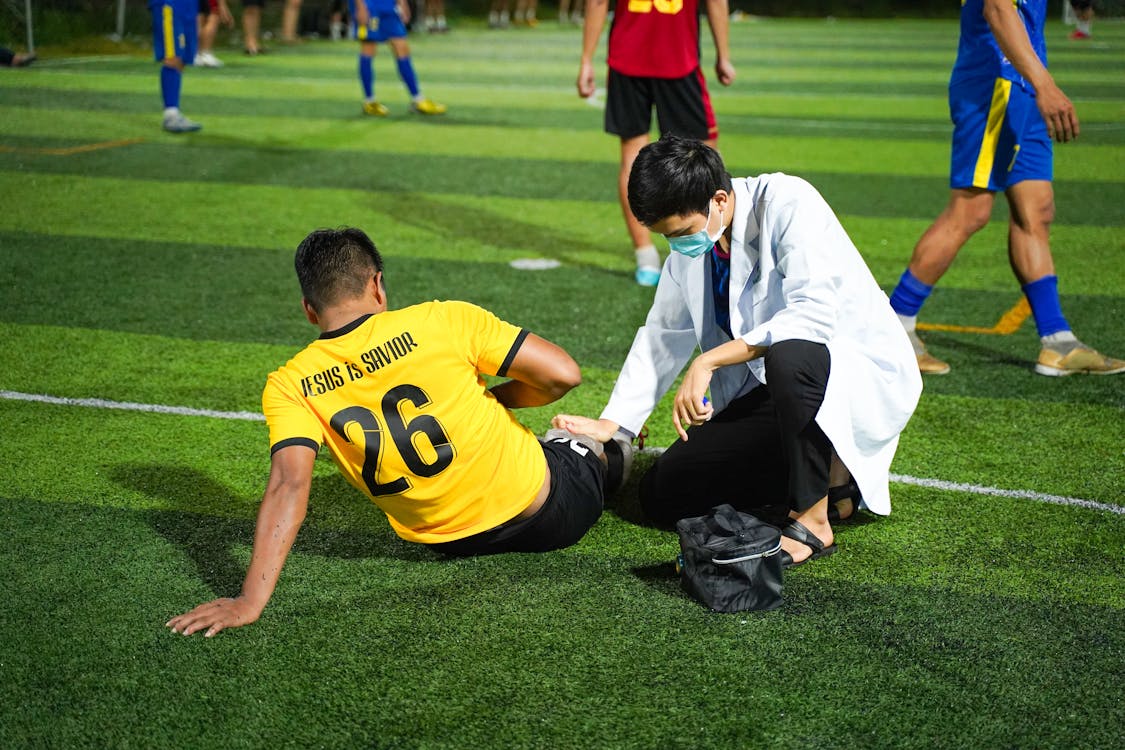
1) Have Achievable Target and Realistic Objectives– In fact, athletes are usually very good for goal setting, being that they are goal-oriented individuals. They are applied for collection of data and to control the process with the purpose of obtaining the outcome. If so, however, an injury may force you to moderate your inclination to grind out more efforts. In order to maintain progress, one should use S.M.A.R.T. goals – goals Specific, Measurable, Attainable, Relevant, an-Time based goals. For example:
2) Visualize A Healthy You– Never neglect the so-called visualization. It has been found that when a person mentally rehearses an action and when he enacts that action physically there is similar neural activation. If you’ve had a broken ankle and are healing, see yourself running across the field at full strength with no sign at all of any previous injury on your two good legs. You must be eager to hit all the three pointers when you are on the field again? Visualize each of them slipping through the net. Visual imagery is used by people ranging from NBA basketball player Stephen Curry, to Olympic skier Lindsay Vonn.
3) Be Optimistic– There can be many big challenges in life and at that time, what could happen is that our mind just tends to send in negative messages. Ensure that you have a mantra in writing for example you can write it then place it somewhere for example on the mirror or your wallet. If uncertainty arises, which we know it will, read it at least once or say it out loud to yourself. Self-praising can be useful as well as is positive self-talk or use of positive self-statements. (Think: Muhammad Ali’s catch phrase “I am the greatest.”
4) Focus On the Present. And it is, when are we ever ill or injured, we wish to be better as soon as possible? Competitors especially, desire to continue with the game as eagerly as possible. Frankly, this and many other sorrows call for patience to be cured, and to stop thinking about the future, you are in fact merciful to yourself. Whatever you do to heal will not happen the next day or the other day. It will happen in the moment, as a process that will unfold in consecutive moments.
5) Honor Your Feelings– If your sport is integrated in your everyday life either because you are an active person or because it is your job, it is normal to feel frustrated because you cannot practice it. You might be losing teammates, friends or such emotions as the elation of scoring a goal or celebrating a victory in a game. If you lose an activity, do not try to analyze it, finding some positives in it – it is a loss. Thus, there is the possibility you could feel the full array of the five stages of grief, namely denial, anger, bargaining, depression, and acceptance. It is thus important to learn how to identify these feelings in as much as it is about owning them, and passing through them.
6) Accept Help and Support– As we’ve already seen, few athletes compete at the highest level all by themselves – even less do so after severe injury. Regardless of how much solo training- or dieting one might have accomplished, the presence of a guide or coach- or therapist is encouraging. Some coaches and athletes know they need to have sport psychologists on standby regardless of an nth win or nth loss.
7) Take Control– Perhaps the worst thing that can happen when you have an injury is that you can develop the feeling of helplessness. Where else aren’t we able to actually set the broken bone or sew up the torn ligament ourselves, we can decide to rest when it’s required that we do so or to train when the body feels ready. In owning your situation, you take the power away from your injury, and this is for your benefit.
I hope this insightful guide “Psychological Pattern to Deal with Sports Injury” will be helpful if you are suffering from any injury but still enthusiastic about sports. Injury is part and parcel of sports; a fact that is evidenced by the fact that virtually all sportsmen/women are bound to get injured at some point in their career. That may make the recovery process a little less scary, to have a plan in place for if there’s a problem – physical, mental, financial, and so on. Of course, one cannot know the difficulties that lie ahead and the manner in which they will be met and solved. But no matter where you are – on the field or on the couch – what you do is always your best.